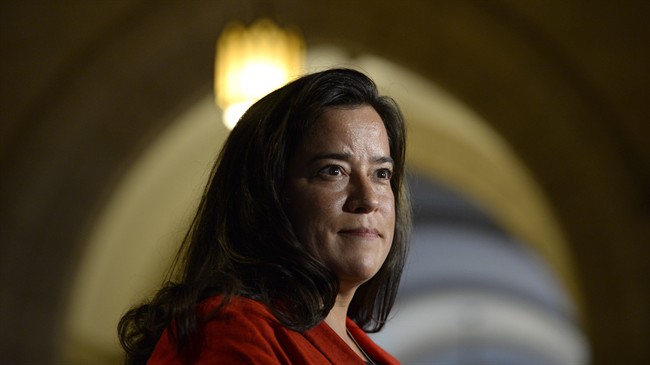In Denmark, it took the looming spectacle of a man facing trial for burning a Koran to convince that country to scrap its centuries-old blasphemy law.

In Ireland, it took a police investigation into actor and comedian Stephen Fry (who said in a television interview, among other things, that “the god who created this universe, if it was created by God, is quite clearly a maniac”) to prompt a conversation about whether that country’s blasphemy law makes any sense. It’s still on the books, at least for now.
Fortunately here in Canada it didn’t take any sort of outrageous prosecution to convince the government to scrap our blasphemy law. In fact, it was accomplished with relatively little fanfare.
On Tuesday, the Liberals unveiled Bill C-51, which aims to “clean up the Criminal Code” by further clarifying sexual assault laws and also by eliminating a number of provisions that have been found unconstitutional, are similar to those found unconstitutional, or are simply obsolete and/or redundant.
READ MORE: Government bringing sexual assault law up to speed with the courts, times
That includes section 296 of the Criminal Code, which is the prohibition on publishing a “blasphemous libel.” It will now be relegated to the ash bin of history, along with other such relics as “challenging someone to a duel,” “possessing or publishing crime comics,” and “fraudulently pretending to practice witchcraft.”
A law prohibiting blasphemy should be anathema for any country that purports to value freedom of expression and freedom of religion — and that includes Canada. It’s arguable that it never should have been drafted in the first place, but it certainly should have been scrapped long ago.
Canada has had a blasphemy law on the books since 1892. It’s been 90 years since the last person was convicted: Toronto atheist and Rationalist Society member Ernest Victor Sterry was convicted of blasphemy in 1927 and sentenced to 60 days in jail.
READ MORE: Canada’s strangest laws: From witchcraft to blasphemy to sleigh bells
But the charge itself has been used as recently as 1980. The owners of a movie theatre in Sault Ste. Marie were charged with blasphemous libel for the “crime” of screening Monty Python’s Life of Bryan, a British satire film about the life and death of Jesus Christ.
Fortunately, Ontario’s attorney-general stepped in to put a stop to the case. Had he not, though, how far would it have gone? How much would the theatre owners have had to bear in terms of legal costs to simply assert their basic rights as Canadians?
It’s all but certain that a charge under section 296 would not have held up in court, but it should never have to get to that point. The Liberals deserve credit for making this long overdue change.
As one Danish lawmaker recently put it, “Religion should not dictate what is allowed and what is forbidden to say publicly. It gives religion a totally unfair priority in society.” As it happens, of course, there are numerous countries where religion does in fact dictate what is forbidden to say publicly. In countries like Pakistan, Saudi Arabia, and Iran, blasphemy is punishable by death.
READ MORE: Duel challenges, fake witchcraft and crime comics, finally, may soon all become legal
If Canada is going to be a voice for human rights on the world stage and speak out against the abuses of these regimes (which certainly we should), it undermines our cause when our own laws concede the point that blasphemy is a crime. To that end, the elimination of section 296 sends a strong message.
Furthermore, though, it demonstrates the clear and obvious correlation between the countries where blasphemy laws are most vigorously enforced and those countries where freedom religion is most nonexistent. Abandoning this law helps to strengthen freedom of religion in this country.
That freedom guarantees one’s right to believe, but it bestows no obligation upon anyone else to respect those beliefs. “God is great” and “God is a myth” should be equally protected speech. Freedom of religion entails the freedom to reject a religion or reject all faith entirely. The state itself must remain neutral on such matters — what we might also refer to as “secularism.”
It’s unfortunate that’s it’s taken 125 years to figure this out, but it’s a victory worth savouring.
Rob Breakenridge is host of “Afternoons with Rob Breakenridge” on Calgary’s NewsTalk 770 and a commentator for Global News.








Comments